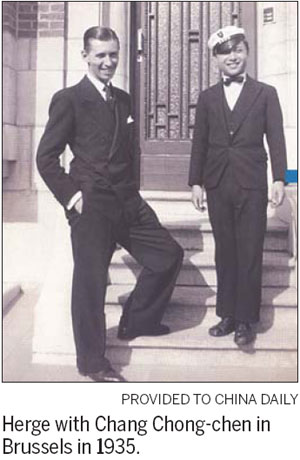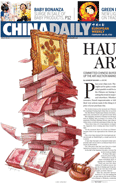Power of The Blue Lotus
Updated: 2011-02-18 10:32
(China Daily European Weekly)
 |
Herge's Tintin dramatically changed in 1934, when the cartoonist was introduced to Chang Chong-chen, a Chinese art student studying in Brussels, who explained Chinese politics, culture, language, art, and philosophy to him.
Herg used this local knowledge to great effect in The Blue Lotus, the fourth book in the 24-book series and the adventurous Belgian reporter was never the same again.
Chang even added some of the Chinese features of the story himself, writing inscriptions on the walls, posters, banners and signs as well as some heartfelt slogans denoucing colonialism and corruption of every kind.
Not content with adding the odd vase of print, he gently guided his friend helping him to loosen up and refine his artistic style.
Their great friendship led to Chang becoming a hero alongside Tintin in The Blue Lotus.
The Blue Lotus became a blueprint for Herge's following works, which were much more meticulously researched than his earlier work.
E-paper

Ear We Go
China and the world set to embrace the merciful, peaceful year of rabbit
Preview of the coming issue
Carrefour finds the going tough in China
Maid to Order
Specials

Mysteries written in blood
Historical records and Caucasian features of locals suggest link with Roman Empire.

Winning Charm
Coastal Yantai banks on little things that matter to grow

New rules to hit property market
The State Council launched a new round of measures to rein in property prices.
